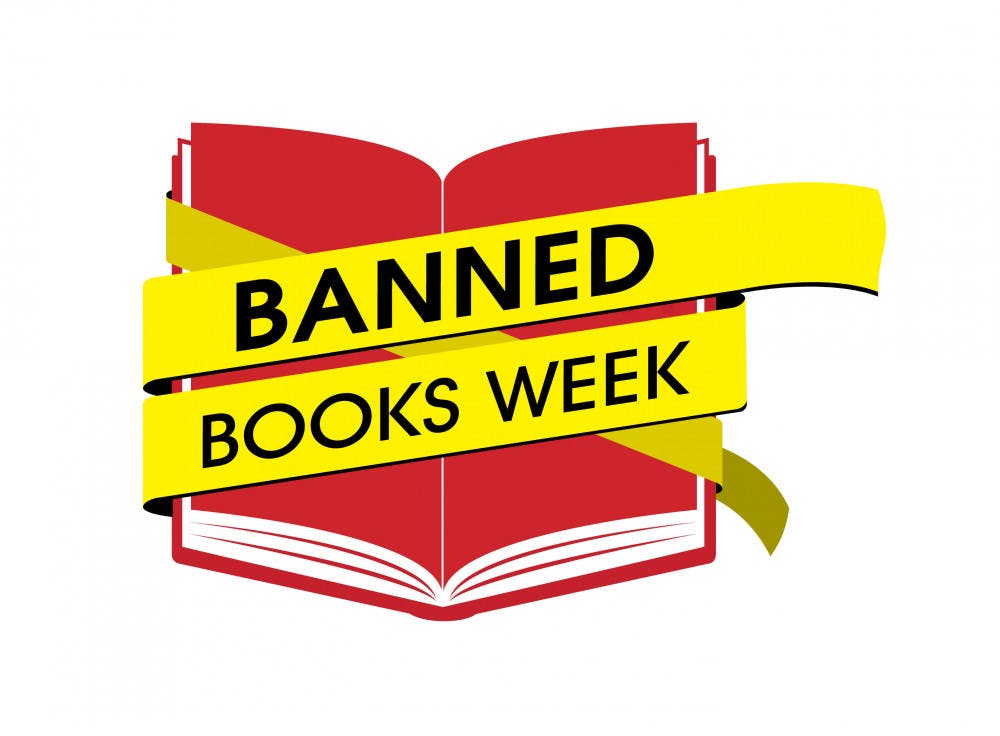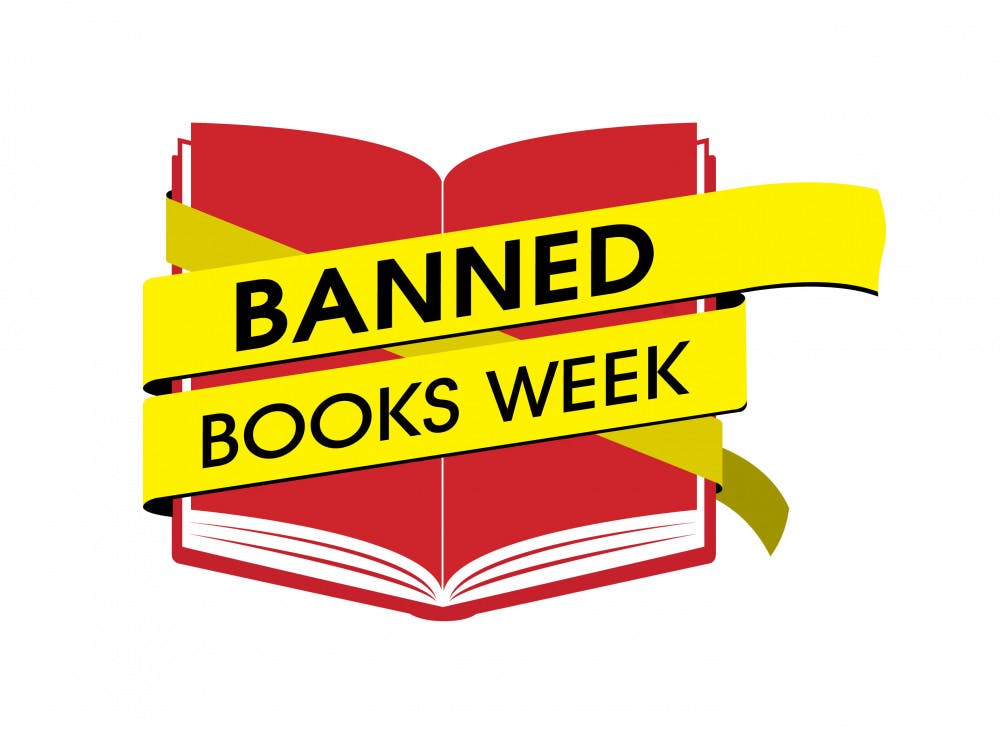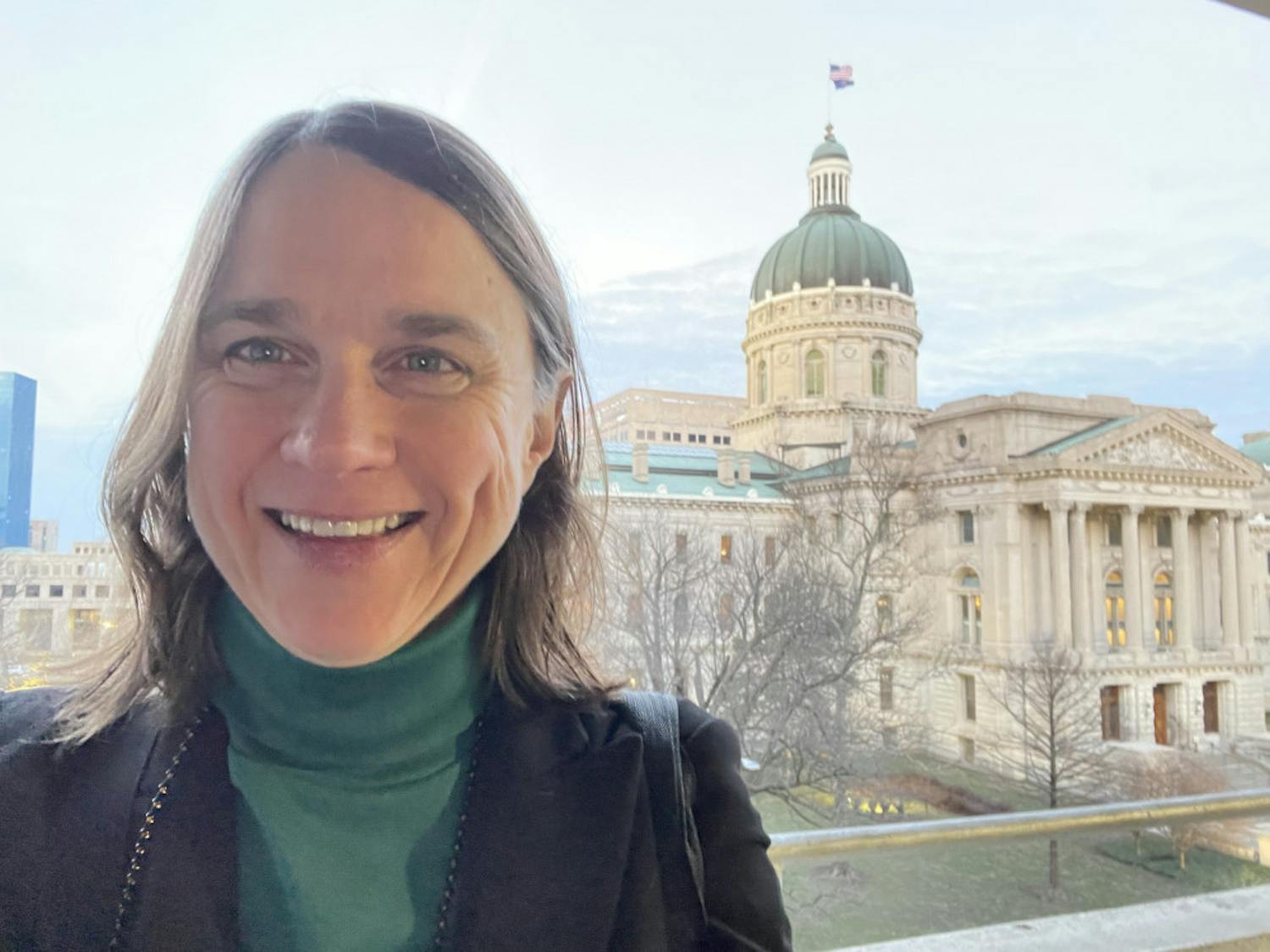Emily Knox, an associate professor at the School of Information Sciences at the University of Illinois at Urbana-Champaign, is very passionate about the history of Banned Books Week. Although she was not present at the Banned Books Week centered on whether or not banned books should be celebrated, she did an interview for a podcast entitled Examining Ethics by Christiane Wisehart.
Wisehart was at the event Wednesday night and played clips of her interview with Knox. Wisehart discussed a wide range of subjects concerning banned books, from common myths about book banning to the different types of censorship concerning books.
The first myth that Wisehart and Knox discussed was the fact that many people assume that the kinds of books that are challenged are filled with vulgarity and perverse content. However, some of the very first books that were banned were religious texts. Knox said that texts are typically banned in response to a crisis or change in society.
The second myth discussed was that the people who challenge books are ignorant people who hate books and reading. However, as Knox and Wisehart pointed out, evidence would suggest that people who challenge books do it because they love books and believe in the power of reading.
Wisehart said that challengers typically view books as “holy vessels” because of the power that these objects hold. Knox says that words are important, and books have an outsized influence on our culture. Wisehart also went on to say that banning books is a symbolic or performative act since ideas cannot be banned.
Another myth that was busted was the opinion that some people hold that Banned Books Week is just a marketing ploy. Books are actually rarely banned today, whereas censorship is still in play. This opinion does not take into account what the challengers are trying to do, which is change the make-up of what is acceptable. The library profession tends to say that it is the job of parents to discuss with their children which reading materials are appropriate, not the library or school’s job.
Jeff McCall was the next and last speaker of the night. McCall is a communication and theater professor at DePauw University. He is also a former journalist who wrote a book entitled Viewer Discretion Advised: Taking Control of Mass Media Influences. He did not agree with the view that it is solely a parent’s job to manage their children’s reading materials.
He says that while parents do need to be responsible for what their children read, our society has institutions to help parents. He said that as a society we have laws against selling liquor or tobacco to minors, and we have TV rating systems, which suggests that is our duty as a society to monitor age appropriate materials.

He is also opposed to the name “Banned Books Week” because banning has an emotional overtone. He says that instead we should follow Canada’s example and name it Freedom to Read. He also went on to say that the phrase “banned books” creates an emotional response that elicits an extreme temperature in people.
He feels as though we need to make a distinction between the selection of materials and the banning of materials. He says that conversations regarding reading materials in question should be focused on the selection process. He went on to say that we respect professional’s decisions on what books should be allowed, but that we must remember these professionals are not infallible since they are human like the rest of us.
He also said that when people come in to raise a concern, these people are not goofballs but these people have genuine concerns and should be listened to. Something that people need to do, according to McCall, in these battles is weighed and balance the fact that there are reasons behind not choosing books for curriculum.
He went to discuss the fact that there are differences between cultural and governmental pressures when it comes to reading materials. He holds the opinion that governments should not referee materials. He says that school boards and school administration do indeed have the authority to choose books based on what they believe the community’s values are.
He concluded his thoughts by saying that we need to focus on the principles at stake and not just circumstances. We get worked up concerning the circumstances and not the principles of matters.
Should We Celebrate Banned Books?

Heads up! This article was imported from a previous version of The Campus Citizen. If you notice any issues, please let us know.
From bannedbooksweek.org




